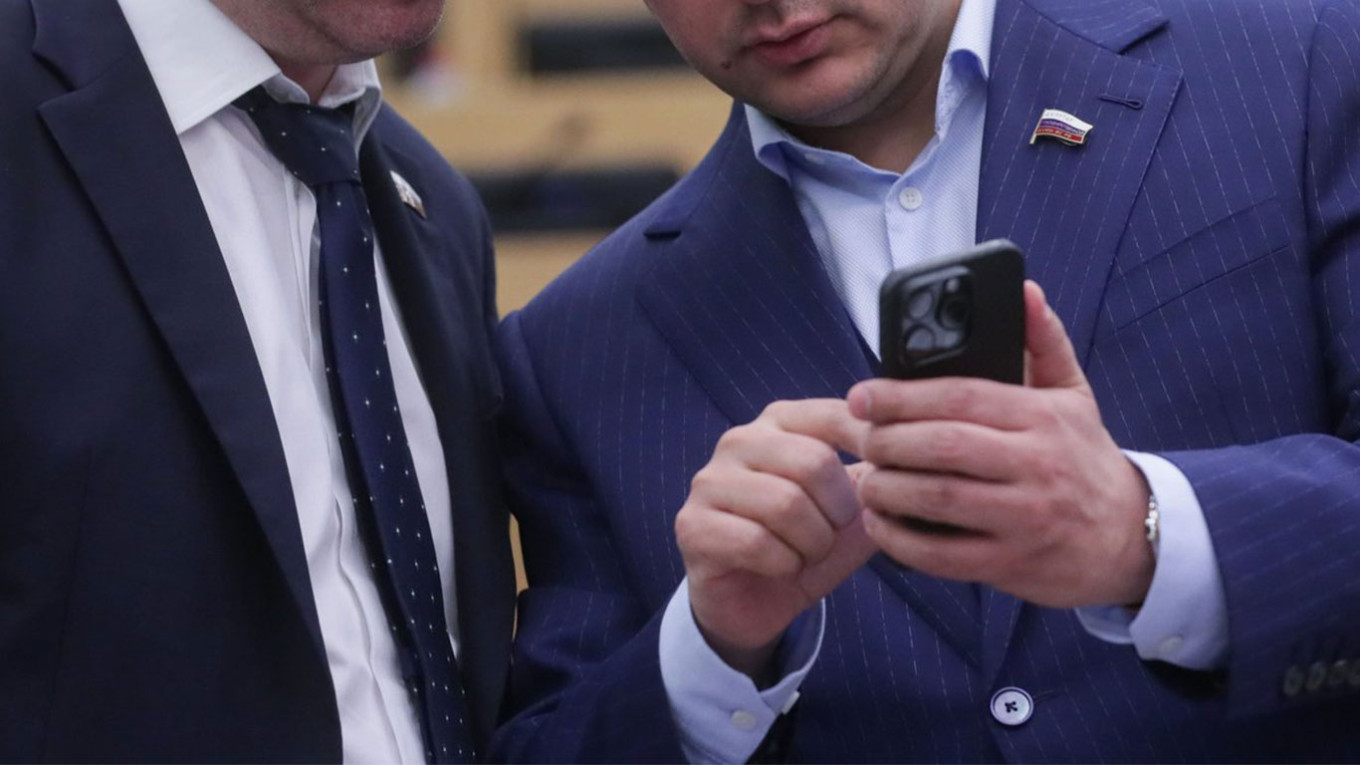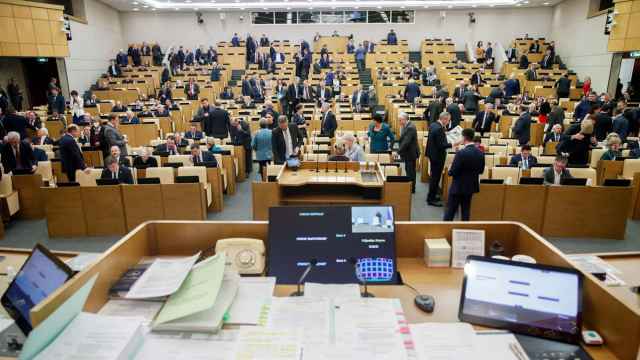Russian lawmakers continue to rely on Telegram as their main channel of communication with the public despite a Kremlin directive urging them to switch to the state-backed messenger app Max, according to a study cited by the Kommersant business daily on Friday.
The analysis by consulting group Polilog found that lawmakers from the ruling United Russia party have the largest combined Telegram following with about 4.8 million subscribers.
State Duma Speaker Vyacheslav Volodin, also from United Russia, leads all deputies in average post views and reposts.
He is followed by New People party leader Alexei Nechaev, his deputy Vladislav Davankov and Liberal Democratic Party (LDPR) head Leonid Slutsky.
On average, posts by New People lawmakers attract the most views at around 31,000 per post, nearly triple the average for United Russia deputies (11,200).
LDPR and A Just Russia lawmakers average around 11,400 and 10,600 views, respectively.
The study also found that about a quarter of deputies post only text messages on Telegram, while 55% combine text and images and 20% share videos. Roughly 116 deputies post short video clips (“circles”), and just 23 use voice messages. When reposting content across platforms, Telegram remains their first choice.
The findings come as the Russian government steps up efforts to promote Max, a “national messenger” it hopes will replace Western-owned apps.
State communications regulator Roskomnadzor in August started restricting calls made through Telegram and WhatsApp.
Around the same time, the presidential administration instructed lawmakers and officials to move their official channels to Max and create a “priority information system” there, the exiled news outlet Vyorstka reported.
The initiative is overseen by the state-affiliated organization Dialog, which manages regional communications centers that handle citizen outreach on behalf of the authorities.
Duma Speaker Volodin announced the launch of his Max channel on Aug. 13, and parliamentary press offices soon informed journalists that official comments would now appear exclusively on the new platform.
Messages in Duma Telegram chats at the time indicated that updates would no longer be published on Telegram, a rule that most lawmakers appear to have ignored in practice.
A Message from The Moscow Times:
Dear readers,
We are facing unprecedented challenges. Russia's Prosecutor General's Office has designated The Moscow Times as an "undesirable" organization, criminalizing our work and putting our staff at risk of prosecution. This follows our earlier unjust labeling as a "foreign agent."
These actions are direct attempts to silence independent journalism in Russia. The authorities claim our work "discredits the decisions of the Russian leadership." We see things differently: we strive to provide accurate, unbiased reporting on Russia.
We, the journalists of The Moscow Times, refuse to be silenced. But to continue our work, we need your help.
Your support, no matter how small, makes a world of difference. If you can, please support us monthly starting from just $2. It's quick to set up, and every contribution makes a significant impact.
By supporting The Moscow Times, you're defending open, independent journalism in the face of repression. Thank you for standing with us.
Remind me later.






